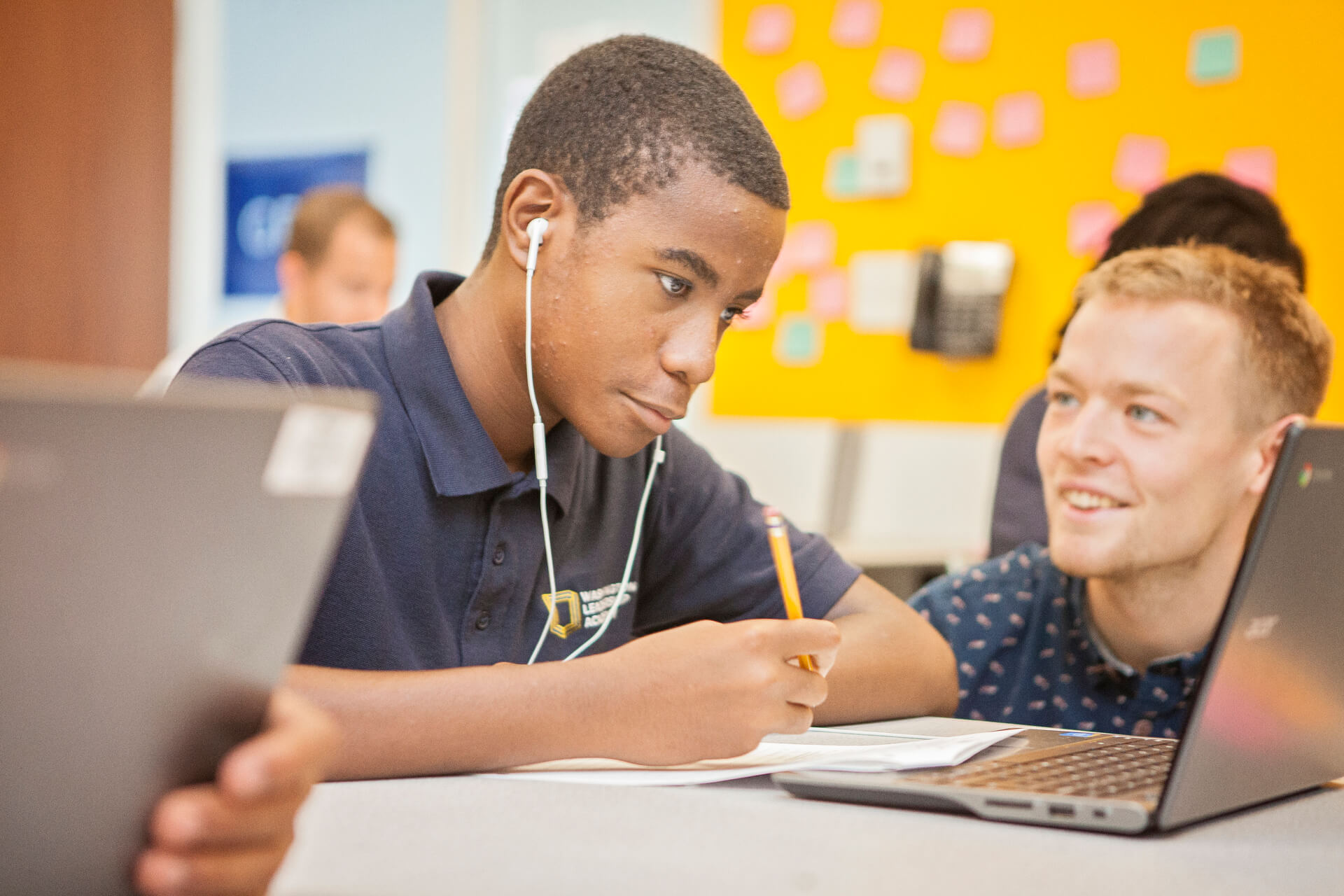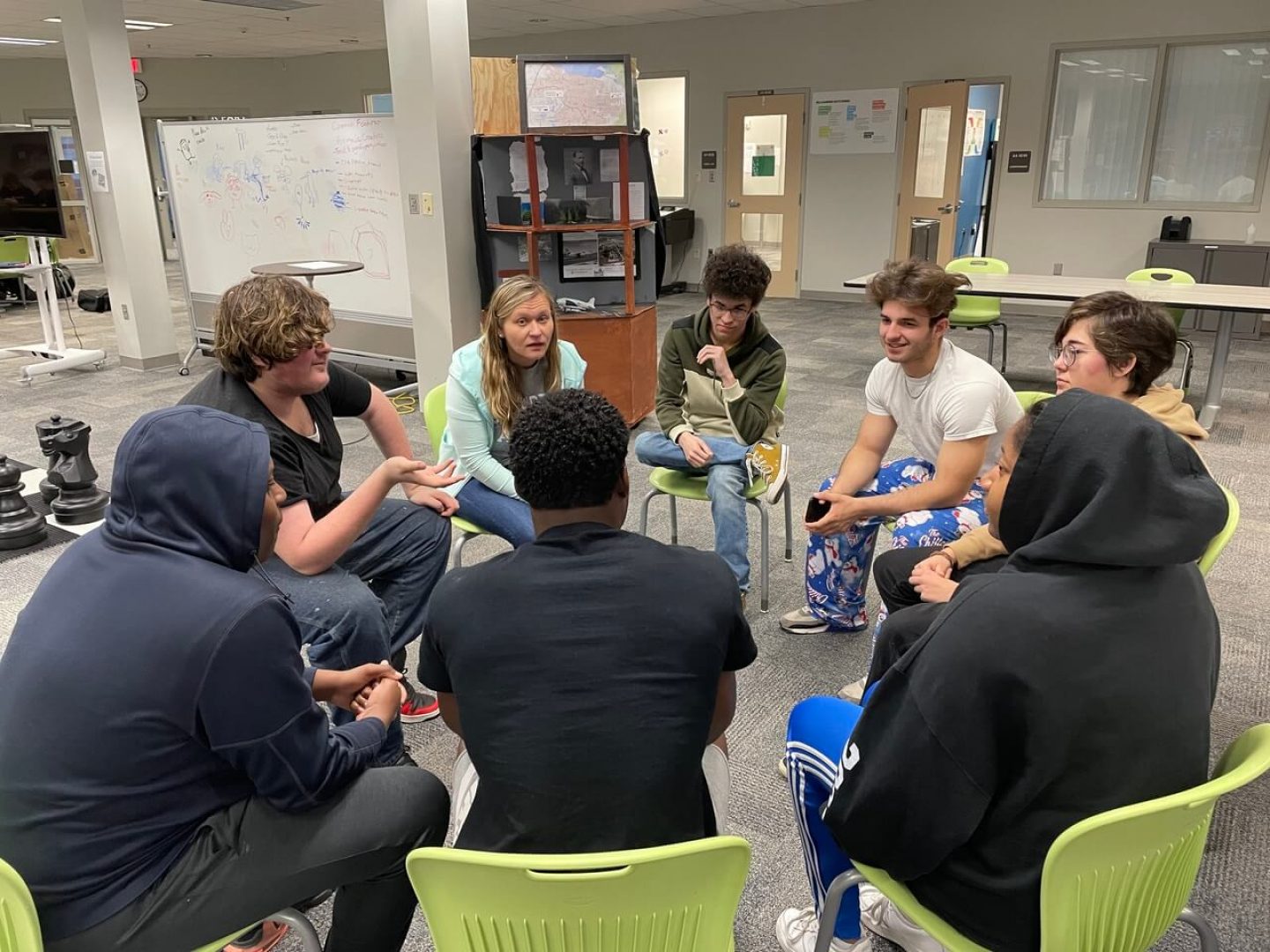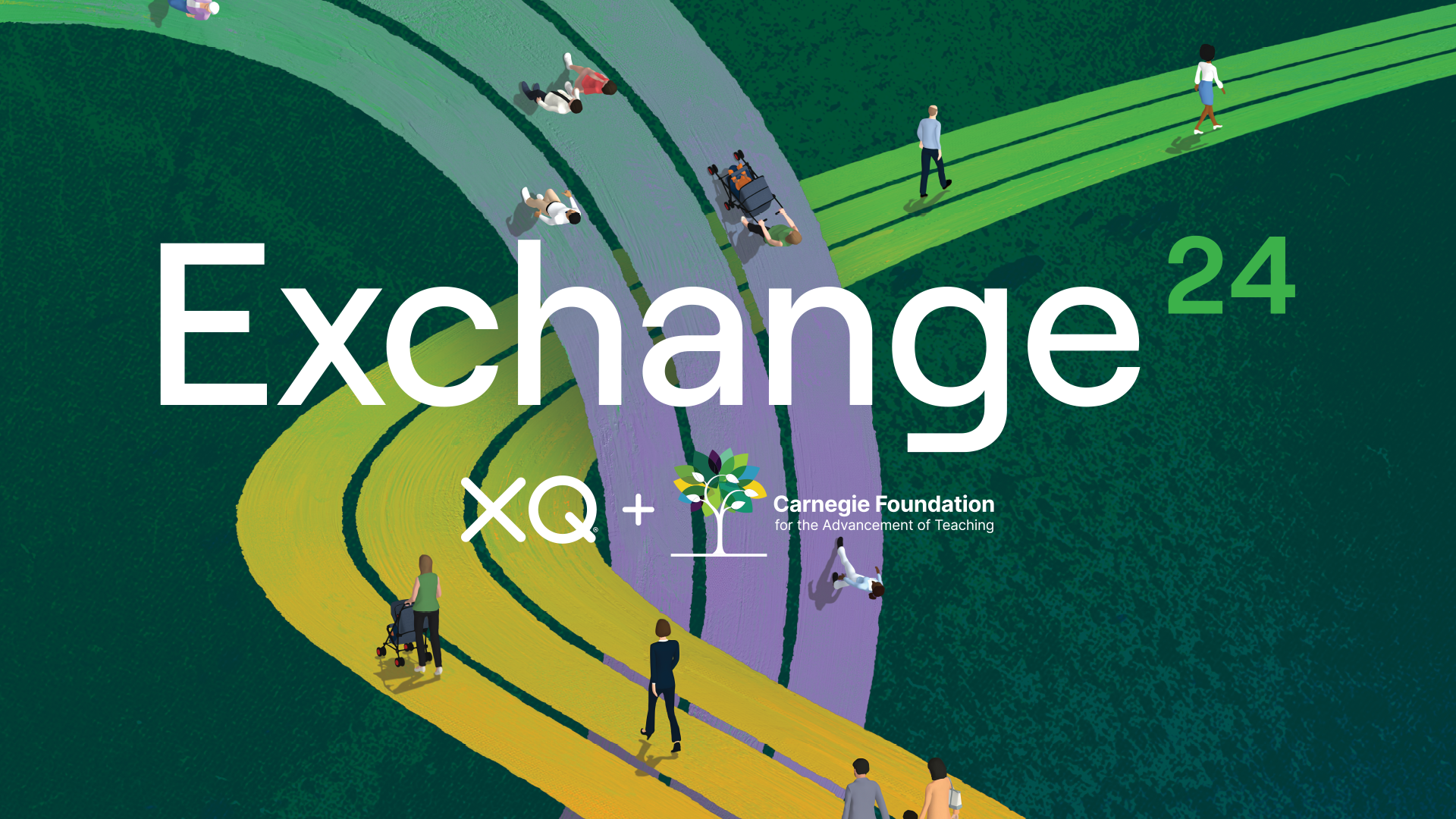How School Counselors Help High School Students
Dr. Rebecca Carter Although there is no “average” day as a counselor at a high…

Dr. Rebecca Carter
Although there is no “average” day as a counselor at a high school, there are several beats high school counselors typically follow. I spend most of my time checking in with students to discuss their academic progress, how they’re managing their learning goals, and their postsecondary plans. For seniors, deadlines for colleges and scholarships approach quickly, and the requests for transcripts pile up.
In between meeting students with scheduled appointments, at any moment, a call to support a student with some degree of distress may need immediate attention. Caring for and supporting students is the backbone of being an effective counselor. We also attend various meetings to support the school. School counselors can be anywhere and everywhere between daily stand-ups, administrator plannings, PLCs, IEP meetings, testing training, and parent-teacher conferences.
School success depends on counselors.
What does a high school counselor do?
The school counselor’s role is dynamic, fitting the needs of students, families, and schools through data-driven identification and evidence-based support. Fittingly, the history of the school counselor is also dynamic. Previously known as “guidance counselors,” the position offered reactionary support and initially helped with vocational guidance. However, the American School Counselor Association (ASCA) uses the term school counselor because guidance is one component of what school counselors provide. Today, counselors are more proactive, using data-driven solutions and providing leadership to support student success.
ASCA has also developed standards for student mindsets and behaviors. Mindset standards include the development of positive attitudes, self-confidence, and understanding of postsecondary goals. Behavior standards cover more skills, including social awareness, self-management, and learning strategy skills.
ASCA has created three domains for school counseling: academic, career, and social/emotional development. The interventions school counselors provide to support high school students can be measured through these domains.
Since the services offered by schools have expanded, the responsibilities of counselors have grown more complex. Below are summaries of what those expanded duties might include:
Academic Advising
One of the more traditional responsibilities of high school counselors is academic advising, typically approached in two prongs—meeting graduation requirements and scheduling student courses. Both aspects ensure students position themselves for postsecondary success. While these two prongs are interconnected, they operate individually and depend on student needs. This means that counselors can have a positive impact in helping high schools achieve greater success. Creating caring, trusting relationships with students, one of the XQ Design Principles, is at the heart of being an effective counselor.
Most students must pass specific courses in each state to be eligible to graduate with their standard diploma. Some states require students to earn scores within a predetermined range for state or national exams. When a student needs to be on track, counselors coordinate with the student and their support systems to ensure they have access to their academic schedules and know how to make up for lost credit.
School counselors can use various data points to help students monitor their progress toward earning a diploma. High school counselors can teach students how to own their data by showing them how to track their progress, further empowering them. This can help ease the burden on counselors who may be assigned hundreds of students. The national average for the 2021-22 school year was 408-to-1, even though ASCA recommends a 250-to-1 ratio.
The second prong of academic advising incorporates scheduling. This significant responsibility likely contributes to a misconception that school counselors are primarily “schedulers” because it is incredibly time-consuming. When scheduling student courses, counselors spend much of that time helping students identify which classes are required for graduation, and which will provide rigorous coursework to benefit their transcripts: honors, dual enrollment, or classes like Advanced Placement.
In preparing for postsecondary success, the school counselor helps students pick courses that allow them to explore potential careers and pursue industry certifications. This work can prepare students for career options and benefit them when applying to colleges.
Data Manager
While the school counselor manages student academic progress tracking, dozens of tools and data points help support this. Counselors contribute to identifying and monitoring students who require academic or behavioral interventions and what the potential impacts of those interventions might entail. This can range from something as indirect as scheduling a student into a reading class to more direct actions, like checking in multiple times each week with a student experiencing chronic absenteeism.
Additionally, data analysis is an essential element of school counseling to help identify trends and areas for improvement. For example, a school counselor can identify when students do not receive opportunities to reach their academic potential based on systemic issues or if a marginalized group receives higher disciplinary action rates than their peers. Data analysis can help counselors identify any biases within the school and raise equity among students by identifying where schools can improve.
In this capacity alone, a high school counselor can have a valuable role in helping to shape and deliver a strong school mission and culture, another one of the research-based XQ Design Principles.

How Do Counselors Help Students?
Because high school counselors have such a dynamic and varied workflow, the amount of help and services they coordinate for students must be recognized. High school counselors play a vital role in achieving a school’s vision and mission. School counselors will have multiple touchpoints between students, their families, teachers, and school administrators—helping all parties navigate and understand their agency within their school’s policies. Here are some other ways high school counselors support students:
Coordinate Student Support
While counselors strive to support all students within a school, students with disabilities (as outlined in the IDEA Act) receive additional support structures as required by the law. School counselors strengthen student support by advocating for students with disabilities, encouraging family involvement, and coordinating student support services within the scope of the school’s counseling program.
Students with disabilities have a protected Section 504 Plan or Individualized Education Program, and students deemed gifted also have IEP Plans. In addition to participating in (or even leading) meetings regarding services for a student with disabilities, school counselors ensure that teachers and other relevant faculty members remain current on what services and accommodations each student may need and is entitled to receive.
School counselors also strive to support English Language Learners (ELLs) by advocating for the student, coordinating with ESOL specialists, and advising on academic placement. Many school counselors help to support families new to the school and help to arrange for translation services.
Counselors as Mediators
While school counselors help students to navigate their academic experience, they also serve as a conduit for communication. School counselors form a unique relationship with their students’ families. They often bridge the gap between the school and the family, connecting parents with teachers and receiving information from the family, which is critical when challenging situations occur at home (financial difficulty, divorce, etc.).
School counselors also help guide students in self-advocacy while communicating with other faculty. Counselors can encourage students to ask questions if they misunderstand a concept and seek teacher feedback if they need additional clarity on an assignment.
Other communication skills guided by the school counselor include empathy and listening skills, especially as the school counselor can facilitate peer-to-peer mediation. High school students can experience interpersonal conflicts between social groups, leading to tensions and undesirable disciplinary actions. Mediating student conflicts will take up much of a counselor’s time. High school can be challenging as students learn to balance academics, social lives, and extracurricular commitments.
Finally, the school counselor can support students in broaching challenging topics with their families and guardians. They help students experiencing distress, connecting them to the right people and resources. ASCA notes they also have to strike the right balance when protecting confidential information about a student and the legal rights of families to “be the guiding voice in their children’s lives.”
Connecting Students With Resources
School counselors help students by adopting various roles, and these supports can be direct or indirect services. Direct services include personal interactions, while indirect services are more behind-the-scenes, like identifying when students are underperforming academically, are overrepresented in discipline, or are experiencing chronic absenteeism. The counselor can then advocate for the student.
Counseling and Mental Health Interventions
School counselors serve as a point of contact, often creating a safe space for students to regroup or process parts of their day. The need for youth mental health support has become more apparent in recent years, as several youth health groups have declared a national state of emergency in children’s mental health.
Students spend much of their day in school, so logic follows that these impacts may need to be addressed during the school day. School counselors can proactively increase school and community awareness surrounding mental health concerns, connect students with resources, and make referrals for outside mental health services. Reactively, school counselors can help a student in crisis by de-escalating and providing brief, solution-focused counseling for emotional concerns that are less severe.
Conclusion
The high school counselor is a dynamic staff member integral to each student’s support system. School counselors help students and families identify areas of concern, advocate for their needs, and track the progress of interventions. Because our society is experiencing several difficulties surrounding mental health concerns with students, supporting school counselors translates into supporting students.
For more information on topics related to counseling, check out the National Career Development Association and the Collaborative for Academic, Social, and Emotional Learning.
Rebecca Carter has worked as a teacher, school counselor, and college and career counselor in Florida. She currently serves as the Strategist for College and Career Programming at the Problem Solving Incubator High School (PSI High) in Seminole County, a position that includes the duties of a school counselor.
Photo at top by Chris Chandler









